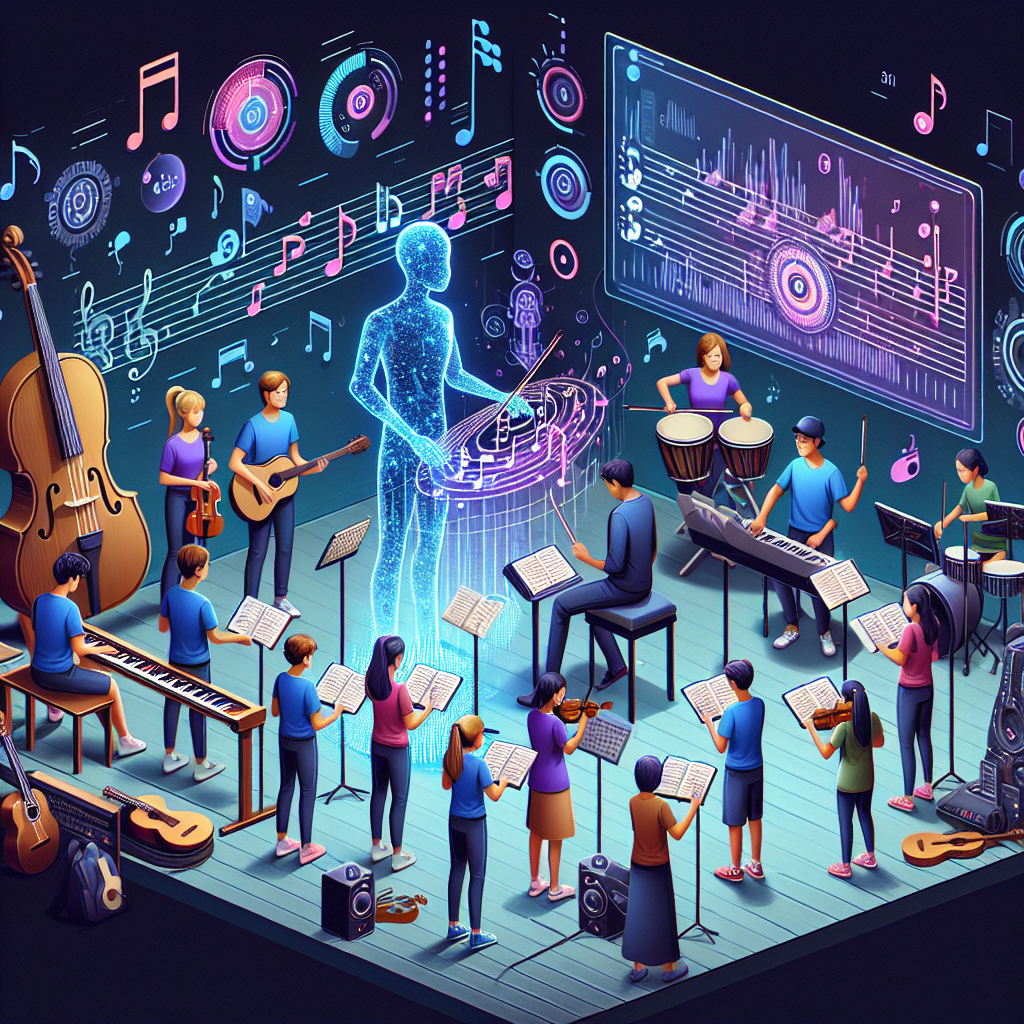The Role of AI in Music Education and Training
Music education has long been a staple in schools and universities around the world. From learning how to play an instrument to understanding music theory and composition, music education plays a crucial role in developing students’ creativity, critical thinking, and problem-solving skills. With the advancement of technology, specifically artificial intelligence (AI), the landscape of music education and training is rapidly evolving.
AI has the potential to revolutionize music education and training by providing personalized learning experiences, enhancing music composition and production, and making music more accessible to a wider audience. In this article, we will explore the role of AI in music education and training and how it is shaping the future of music learning.
Personalized Learning Experiences
One of the key advantages of AI in music education is its ability to provide personalized learning experiences for students. AI-powered music education platforms can analyze students’ strengths and weaknesses, learning styles, and progress to create customized lesson plans and exercises. This allows students to learn at their own pace and focus on areas that need improvement, leading to more effective learning outcomes.
For example, AI can analyze a student’s performance on a musical instrument and provide real-time feedback on technique, timing, and expression. This feedback can help students identify areas for improvement and track their progress over time. AI can also generate personalized practice exercises based on students’ skill level and interests, making learning more engaging and effective.
Enhancing Music Composition and Production
AI is also being used to enhance music composition and production. AI-powered tools can analyze existing music compositions to identify patterns, structures, and trends, which can help composers and producers generate new ideas and enhance their creative process. AI can also assist in music arrangement, harmonization, and orchestration, allowing composers to explore new musical possibilities and experiment with different sounds and styles.
In addition, AI can help musicians and producers improve the quality of their recordings and performances. AI-powered software can analyze audio recordings to identify and correct pitch and timing errors, enhance sound quality, and even generate realistic instrument sounds. This can help musicians and producers create professional-quality recordings and performances without the need for expensive equipment or extensive training.
Making Music More Accessible
Another important role of AI in music education and training is making music more accessible to a wider audience. AI-powered tools can help individuals with disabilities or special needs learn and create music, allowing them to express themselves creatively and develop their musical skills. For example, AI-powered software can assist individuals with physical disabilities in playing musical instruments or creating music using alternative input methods, such as eye tracking or voice commands.
AI can also help individuals with hearing impairments experience and appreciate music through visualizations, vibrations, and other sensory feedback. By making music more inclusive and accessible, AI can empower individuals of all backgrounds and abilities to engage with and enjoy music in meaningful ways.
FAQs
Q: How can AI improve music education for beginners?
A: AI can improve music education for beginners by providing personalized learning experiences, real-time feedback, and customized practice exercises. AI-powered tools can help beginners learn at their own pace, identify areas for improvement, and track their progress over time, leading to more effective learning outcomes.
Q: Can AI help advanced musicians and composers enhance their creative process?
A: Yes, AI can help advanced musicians and composers enhance their creative process by analyzing existing music compositions, generating new ideas, and assisting in music arrangement and orchestration. AI-powered tools can help musicians and composers explore new musical possibilities, experiment with different sounds and styles, and improve the quality of their recordings and performances.
Q: How can AI make music more accessible to individuals with disabilities?
A: AI can make music more accessible to individuals with disabilities by assisting them in playing musical instruments, creating music, and experiencing and appreciating music through alternative input methods, sensory feedback, and visualizations. AI-powered tools can empower individuals with disabilities to engage with and enjoy music in meaningful ways, regardless of their background or abilities.
In conclusion, the role of AI in music education and training is rapidly expanding, offering new opportunities for personalized learning experiences, enhanced creativity, and greater accessibility. By leveraging AI-powered tools and technologies, educators, musicians, and music enthusiasts can unlock new possibilities in music learning and creation, shaping the future of music education for generations to come.

